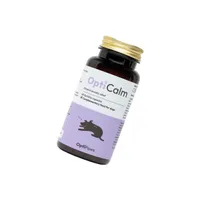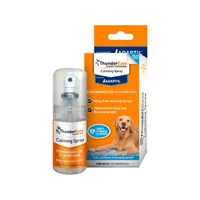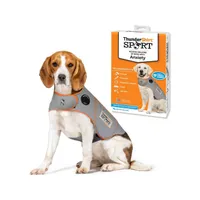How to keep your dog calm at the vet: 3 tips from an expert
Is your dog scared of the vet? Here are some easy ways to help them relax
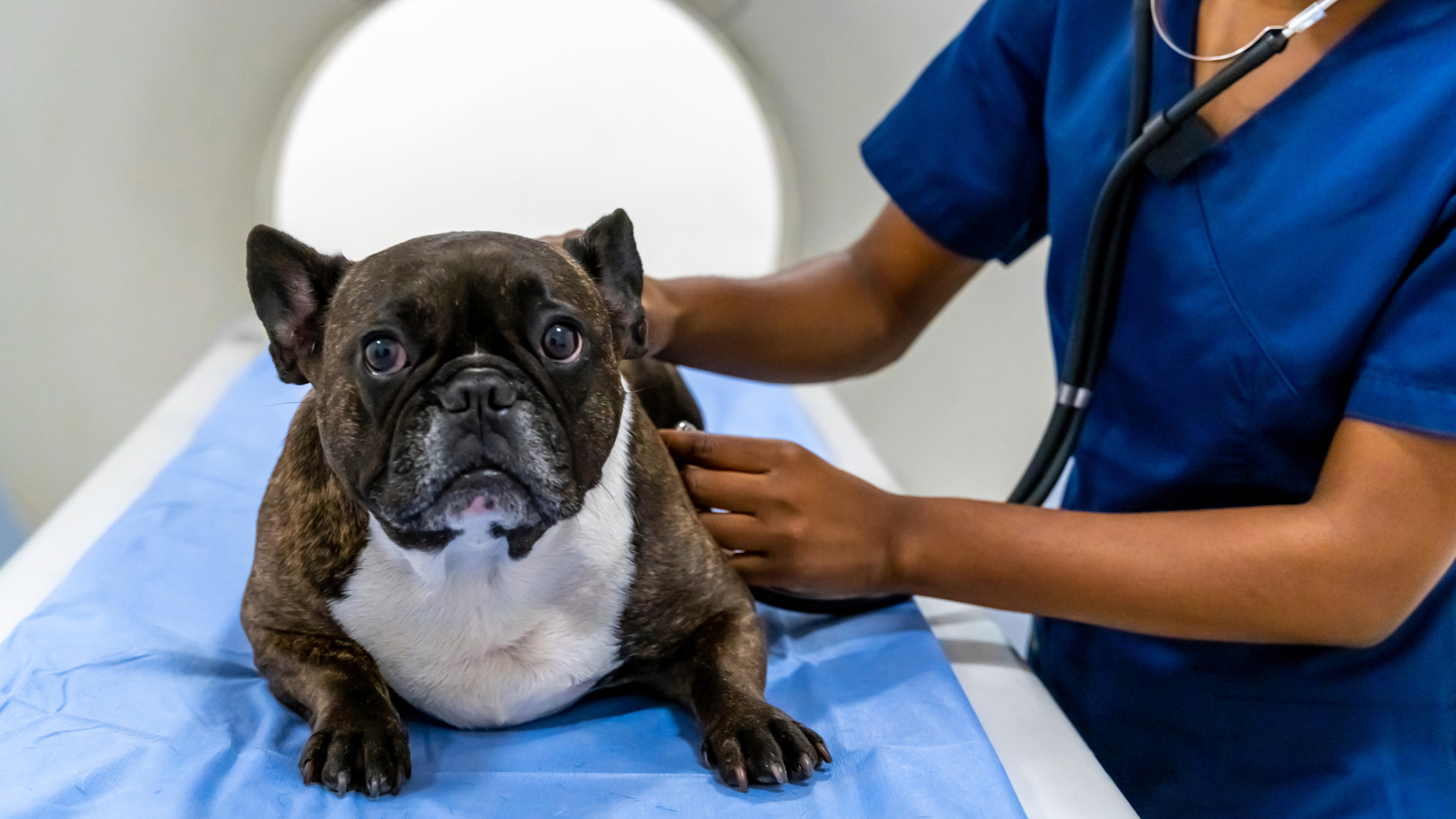
Get the best advice, tips and top tech for your beloved Pets
You are now subscribed
Your newsletter sign-up was successful
If your dog is afraid of the vet, they might show signs like barking, growling, and physical reactions, which can make check-ups and vaccinations very difficult – and might put you off taking them altogether.
To make vet visits more enjoyable for your dog, expert Dr Rebecca MacMillan says you'll want to give them plenty of praise and treats, as well as low-key interactions with staff members to slowly boost their confidence.
While working with a pet behaviorist or vet is the best way to help your dog overcome their fear, there are a few products that can help – like pheromones, supplements and pressure vests – that Dr MacMillan has recommended below.
How to keep your dog calm at the vet
1. Supplements
Supplements aren't a guaranteed quick fix, but there are lots of options available that could promote relaxation for your pooch, so it's definitely worth giving it a go. Dr MacMillan says that oral supplements can be helpful for some dogs and often contain natural ingredients like casein, L-tryptophan, and B vitamins, which have calming effects.
OptiCalm Dog Calming Supplement | Amazon
Formulated by vets with an all-natural recipe, these calming supplements help reduce anxiety, promote normal sleep, and support the nervous system.
2. Pheromones
Dr MacMillan says: "Synthetic dog appeasing pheromones can also be useful. These replicate the pheromones released by mother dogs to calm their puppies, letting them know they are safe. These can evoke similar feelings in adult dogs too."
You can buy these as plug-in diffusers (like these ones) to place around your home, or, when visiting the vet, use an impregnated collar (like this) or a spray to spritz on your dog’s bedding, crate, and toys.
ThunderEase Dog Calming Pheromone Spray | Amazon
Pheromone sprays are the easiest way to promote relaxation, helping to reduce destructive, stress-related behaviors like barking. More than 80% of pup parents reported improvements after using this formula – and if you don't agree, you're covered by a 60-day money-back guarantee.
3. Pressure vests
For some dogs, pressure vests (aka Thundershirts) can have anti-anxiety effects, according to Dr MacMillan. They apply gentle pressure on your dog’s body, which can help them feel more secure in their environment.
Get the best advice, tips and top tech for your beloved Pets
ThunderShirt for Dogs | Amazon
This pressure vest has helped thousands of pup parents, with more than 13,000 five-star reviews on Amazon. The design is lightweight, breathable, and machine-washable, and can be used anytime your dog feels uneasy – especially when combined with a pheromone spray.
Signs a dog is stressed at the vets
If you're wondering whether your dog is stressed by the vet, look out for these tell-tale signs of stress in dogs:
- Pacing
- Shaking
- Excessive yawning
- Nervous lip licking
- Drooling
- Body posture changes
- Face expression changes, like whale eye
- Excessive panting
- Hiding
- Fear aggression
- Toilet accidents
As mentioned earlier, if you want the best results, we recommend using these products as part of a behavioral modification programme run by a qualified behaviorist.
In some cases, where the dog is very stressed and unable to cope with visits at all, vets can prescribe medication to help manage their symptoms.
Dr. MacMillan says: "These drugs can be very effective at reducing severe anxiety, keeping your pet calm and allowing veterinary staff to do their job more effectively."
Read next: How to destress your dog and how to make vet visits less stressful
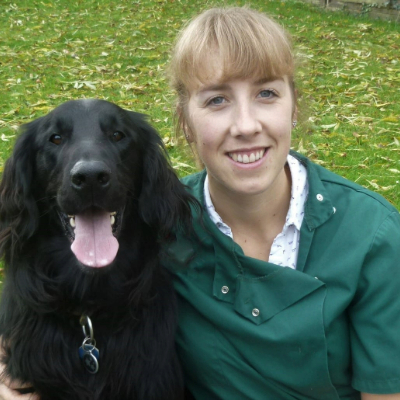
Rebecca is a veterinary surgeon who graduated in 2009 from the Royal Veterinary College in London. She has a wealth of experience in first opinion small animal practice, having done a mixture of day-to-day routine work, on-call emergency duties and managerial roles over the years. Rebecca enjoys medicine in particular and she is proud to have recently achieved a BSAVA postgraduate certificate in small animal medicine (with commendation).
Edited by Georgia Guerin.

Megan is a Staff Writer at PetsRadar, covering features, reviews, deals, and buying guides. She has a wealth of experience caring for animals, having grown up with dogs, cats, horses, guinea pigs, and more throughout her life. She studied BA Journalism at the University of Westminster, where she specialized in lifestyle journalism and was editor of Smoke Radio’s lifestyle website. Megan works alongside qualified vets and accredited trainers to ensure you get the best advice possible. She is passionate about finding accurate and helpful answers to your pet-related questions.
